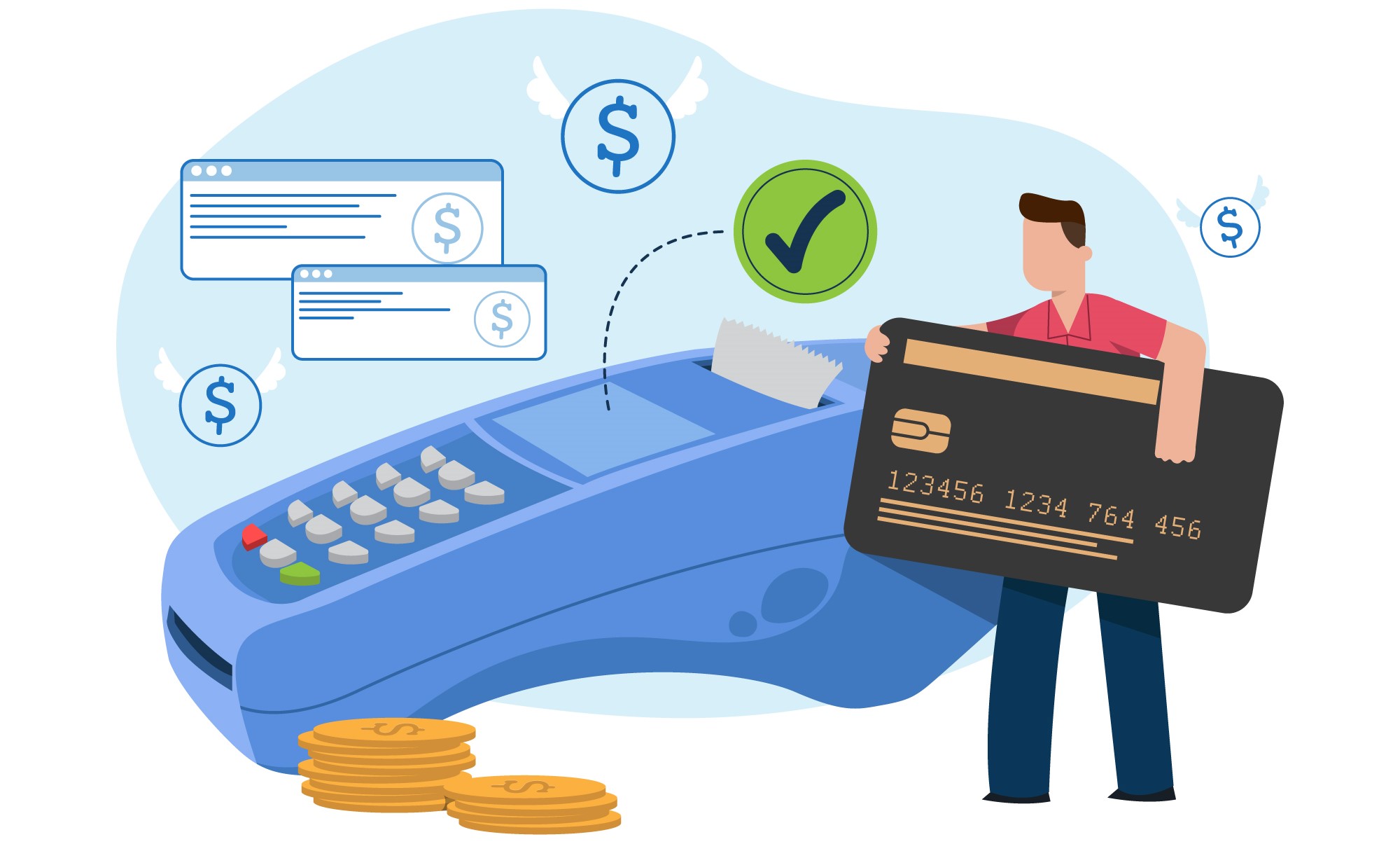Payment Automation
In the digital age, the financial sector stands at the forefront of technological innovation, with Artificial Intelligence (AI) leading the charge in transforming payment processes. AI in payment automation is not just a trend; it’s a comprehensive overhaul of traditional transaction methods, making them smarter, faster, and more secure. As we delve into the intricacies of AI-driven payments, we uncover a world where efficiency and security converge, promising a seamless financial experience for businesses and consumers alike.

| Use Case for Payment Automation | Challenges in Payment Automation | Benefits of AI for the Use Case | Features of AI Solution for the Use Case | Quantitative Benefits in Terms of Revenue, Time, and Cost |
|---|---|---|---|---|
| Fraud Detection and Prevention | High incidence of false positives, difficulty in real-time detection of sophisticated fraud schemes. | Enhances accuracy in detecting fraud, reduces false positives, and identifies new fraud patterns. | Machine learning algorithms for pattern recognition, real-time transaction monitoring, anomaly detection systems. | Up to 40% reduction in fraud-related losses, 25% decrease in false positive rates, leading to improved customer trust and reduced operational costs. |
| Personalized Customer Experience | One-size-fits-all approaches fail to meet individual customer needs, leading to lower satisfaction and engagement. | Offers tailored financial products and advice, enhancing customer satisfaction and loyalty. | Personalization engines using customer data analysis, predictive analytics for personalized product offerings. | Increases customer lifetime value by 30%, boosts cross-sell and up-sell rates by 20%, and enhances customer retention by 15%. |
| Efficient Transaction Processing | Slow and error-prone manual processing, high operational costs, and scalability issues. | Speeds up transaction processing, reduces errors, and lowers operational costs. | Automated workflows, natural language processing for data extraction, machine learning for process optimization. | Reduces transaction processing time by up to 50%, cuts operational costs by 30%, and increases transaction volume handling by 40%. |
| Risk Management and Compliance | Managing credit risk, operational risk, and compliance with evolving regulations is complex and resource-intensive. | Improves risk assessment accuracy, ensures regulatory compliance, and minimizes operational risks. | Risk assessment models, regulatory compliance algorithms, continuous monitoring and reporting tools. | Enhances risk detection by 35%, reduces compliance-related fines by up to 50%, and lowers operational risk-related losses by 25%. |
| Customer Service and Support | High volumes of inquiries, limited availability of support staff, and inconsistent quality of service. | Provides 24/7 customer support, reduces response times, and improves service quality. | AI chatbots for instant customer interaction, NLP for handling queries, machine learning for improving response accuracy. | Decreases customer service operational costs by up to 40%, reduces response times by 80%, and increases customer satisfaction scores by up to 20%. |
| Cross-Border Payments | High fees, long processing times, and currency conversion complexities. | Reduces transaction costs and times, simplifies currency conversions, and enhances transparency. | Lowers transaction fees by up to 70%, shortens processing times from days to minutes, and reduces currency conversion losses by 15%. | Blockchain integration for secure and efficient transactions, AI-driven currency exchange rate prediction, automated compliance checks. |
What is AI in Payment Automation?
AI in payment automation embodies the integration of artificial intelligence technologies to refine and secure the processes involved in financial transactions. From fraud detection to real-time payment processing, AI leverages sophisticated algorithms and machine learning to navigate the complex landscape of modern-day payments, offering a beacon of reliability in the fast-paced financial world.
The Tech Behind AI in Payments
The backbone of AI in payments lies in its diverse technological arsenal:
Machine Learning: At the heart of AI payment systems, machine learning algorithms sift through vast datasets, identifying transaction patterns, predicting future trends, and sniffing out potential fraud with unparalleled accuracy.
Natural Language Processing (NLP): NLP transforms customer service in the financial sector, facilitating voice-activated payments and offering round-the-clock assistance through intelligent chatbots and virtual assistants.
Blockchain: When AI meets blockchain, the result is a fortified transaction process that champions transparency, security, and efficiency, significantly reducing the risk of fraud and enhancing trust in digital transactions.
Key Applications of AI in Payments
The versatility of AI in payments is evident across various applications:
Fraud Detection: By analyzing transaction data in real-time, AI systems can detect anomalies that signal fraudulent activity, thereby safeguarding user funds and enhancing trust in financial institutions.
Risk Management: AI’s predictive capabilities extend to evaluating credit risk, setting limits, and managing loans, ensuring a balanced financial ecosystem.
Personalized Banking: Tailored financial advice, product recommendations, and personalized banking experiences are all made possible through AI, fostering a deeper connection between financial institutions and their clients.
Benefits of AI in Payments
The integration of AI in payment systems ushers in a myriad of benefits:
Unmatched Security: The advanced fraud detection capabilities of AI systems significantly reduce the risk of cyber threats, making digital transactions safer than ever.
Streamlined Operations: AI automates routine tasks, cutting down processing times and operational costs, thereby enhancing the efficiency of financial transactions.
Elevated User Experience: Through personalized services and instant payment processing, AI not only meets but exceeds customer expectations, setting a new standard for customer satisfaction in the financial sector.
Challenges of AI in Payments
Despite its advantages, the adoption of AI in payment automation is not without challenges:
Data Privacy: The handling of sensitive financial data raises concerns about privacy and data protection, necessitating robust security measures.
Initial Costs: The upfront investment required for AI technology can be substantial, posing a barrier to entry for smaller institutions.
Regulatory Hurdles: Navigating the complex regulatory framework of the financial industry remains a formidable challenge for AI integration.
Use Cases of AI in Payments
The real-world impact of AI in payments is both profound and far-reaching:
Contactless Payments: In the era of social distancing, AI-enabled contactless payments offer a safe and convenient transaction method, gaining widespread popularity.
Smart Wallets: AI-driven smart wallets simplify financial management, providing users with a comprehensive overview of their finances and facilitating seamless transactions.
Cross-Border Payments: AI streamlines international transactions, optimizing currency exchange and reducing transaction fees, thereby fostering global trade.
Real life case study: Ai in Payment automation
Case Study 1: Global Credit Solutions Inc.
After implementing their AI-driven fraud detection system, Global Credit Solutions Inc. observed significant improvements:
- Reduction in false positive fraud alerts by 35%, enhancing customer satisfaction and trust in their credit services.
- A 40% increase in accurately detected fraudulent transactions, substantially lowering financial losses due to fraud.
Case Study 2: QuickShop Online Marketplace
The introduction of an AI-powered checkout by QuickShop Online Marketplace led to notable results:
- Checkout times were halved, resulting in a 20% increase in conversion rates as customers enjoyed a smoother shopping experience.
- Payment processing errors decreased by 45%, reducing cart abandonment rates and boosting overall sales by 15%.
Case Study 3: Universal Bank
With the AI system for personalized banking, Universal Bank achieved impressive outcomes:
- Customer engagement with financial products and services rose by 30%, driven by personalized recommendations.
- Customer satisfaction scores saw a 25% uplift, attributed to the tailored and proactive financial advice provided by the AI system.
The Future of AI in Payments
As we look ahead, the future of AI in payment automation is bright, marked by continuous innovation and integration:
Predictive Analytics: AI will offer advanced predictive insights, enabling personalized financial planning and smarter decision-making.
Seamless Integration: The boundaries between AI and financial services will blur, leading to a cohesive payment ecosystem that offers unparalleled convenience and security.
Robust Security Protocols: With the evolution of AI, we can anticipate even more sophisticated security measures to combat emerging cyber threats, ensuring the integrity of digital transactions.
In conclusion, AI in payment automation stands as a testament to the transformative power of technology in the financial sector. As AI continues to evolve, it promises to redefine the landscape of financial transactions, making them more efficient, secure, and user-friendly. The journey of AI in payments is just beginning, and its full potential is yet to be unleashed,
promising a future where financial transactions are not just transactions but experiences that are seamless & secure.
For those ready to embrace the future of financial transactions and harness the full potential of AI in payment automation, 365aitech stands as the premier choice. To explore how 365aitech can revolutionize your payment processes and elevate your financial operations to new heights, please contact us. Join us in shaping the future of payments, where security, efficiency, and innovation converge to create unparalleled value for businesses and consumers alike.
